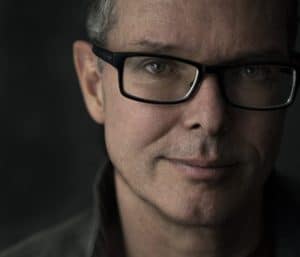by Frans Stiene

Within the Reiki precepts we see the precept, “do not anger“. This in itself is a deep teaching but if we just read it shallowly and do not contemplate it, then we do not understand the deeper meaning of this precept. In fact, we do not understand any of them correctly unless we dig deeply into each one. Doing that can help us to understand all of the Reiki precepts.
Do not anger… I often hear people say that anger is a normal human reaction and that we should not suppress it. But that is not the correct way of seeing it. First of all, Mikao Usui didn’t say to suppress our anger, he said simply this: do not anger. Secondly, the word “human” comes from the word “humane“, which means kind and compassionate. Therefore if we are really human/humane – that is, if we are living as our True Self, open and empty of our human ego – then there also is no anger: only kindness and compassion. This is why we also see the precept, “be kind/compassionate to ourselves and others” in the Reiki precepts.
Within the Japanese teachings the word “not” or “no” points to emptiness=liberation of the ego.
“”Not” and “non-” can be understood to be synonymous with liberation from the ego-self.” – The Essence of Zen, The Teachings of Sekkei Harada
“Hongzhi continues by citing an earlier Chan master’s words to express the idea of not injecting one’s “self” into situations in daily life: Having no-mind, one attains in oneself the Way of no-mind. Actualizing no-mind in oneself, the Way ceases to be.”…. “No” here means no self-reference.” – Silent Illumination by Guo Gu
If we realize that there is no ego/no “I”/no self, then there is no one to get angry in the first place!
“When you realize there is no self, then through emptiness you realize there is no I. Then there is no anger. Once there is no anger, you perfected patience and tolerance. When you persevere and understand the real meaning of emptiness, then the perfection of diligence and perseverance will grow by itself.” Kyabjé Dodrupchen Rinpoché
In this quote we can even see how it all unfolds. When we realize that there is no self, no I, then automatically there is no anger. And when we keep this in our mind, today, during all we do then we start to embody the Reiki precept of diligence. Now we diligently embody the Reiki precepts in all our daily activities, because no I, no anger and no worry. And this means that all by itself we are grateful and compassionate. This is why, when we look deep into the Reiki precepts, we see emptiness and compassion.
“True compassion is undirected and holds no conceptual focus. That kind of genuine, true compassion is only possible after realizing emptiness.” Tsoknyi Rinpoche
Of course all the other practices within the system of Reiki also point to this emptiness and compassion; again we just have to look deeply into them. For example, the symbol/mantra hon sha ze sho nen 本者是正念 translates as, “my original nature is right mind”. And Right Mind is the same as no-mind which is the same as emptiness or, put another way, to forget the ego self.
“The No-Mind is the same as the Right Mind.” – The Unfettered Mind by Zen Master Takuan Sōhō
“This true Self cannot be perceived. It is vast and without limit. To awaken to this true Self is also expressed as awakening to “No-Self,” or “No-Mind,” or “Emptiness,” or “to forget the ego-self.”” – The Essence of Zen – The Teachings of Sekkei Harada translated and edited by Daigaku Rumme
As you can see, all these wonderful teachers pointed out the same truth. When we embody emptiness through our daily meditation practices we start to embody our True Self, that we are Reiki in all we do. Then we have mastered the Reiki precepts and we can live a daily life of no anger, no worry, being grateful, true to our way and our being, and we have true compassion for ourselves and others. A compassion which does not change according to circumstances and which embraces every single sentient being.
“Not substantializing the ego is called the precepts of not being angry. Since everything is the reality of life, there is no “I.” Although this precept is commonly understood as not becoming angry, it really means that there is no ego that becomes angry.” – Master Dogen’s Zazen Meditation Handbook with a commentary by Zen master Kosho Uchiyama Roshi
And contemplating the precept, “do not anger” is the first step to understanding those that follow, and that lead to compassion and to our True Self.

